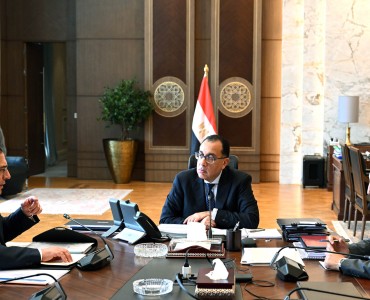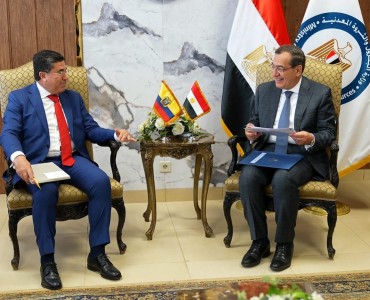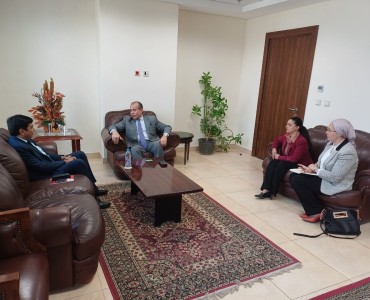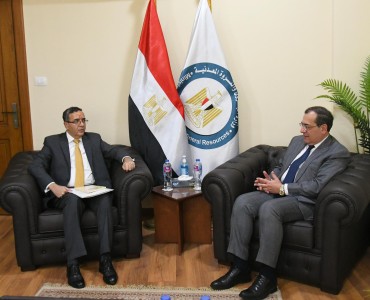Italy and Spain aim to reduce their dependence on North African natural gas imports, posing potential trouble for countries including Algeria, the one oil- and gas-rich country in the region so far spared from major social unrest.
The two European nations each import around a third of their gas from Algeria and over 10 percent from Libya and Egypt combined.
Violent uprisings that have toppled governments have already reduced supplies from Libya and Egypt, while an attack on Algeria’s In Amenas gas facility run by BP (BP.L) and Statoil (STL.OL) in January has highlighted the risk there.
“We need new supply sources,” said Leonardo Senni, head of the energy department at Italy’s Ministry of Economic Development.
Several regions are set to begin liquefied natural gas (LNG) exports this decade, including North America, East Africa, the eastern Mediterranean as well as Australia.
“Italy is trying to diversify away with the likes of LNG and the TAP pipeline,” said Fulvio Conti, chief executive of Italian utility Enel (ENEI.MI), though he added: “We can’t do without Algerian gas”.
Italian energy firm ENI (ENI.MI) last week renegotiated its contracts with Algeria by taking less volumes.
Spain is also worried. “There is a trend in which our African gas imports are becoming more unreliable and our biggest concern is Algeria. So we are looking for new import sources,” said one Spanish gas importer.
Intelligence analysts say that falling gas sales to its main clients in Europe could put Algeria at risk of social unrest.
“The country is vulnerable to unrest in view of the fact that social gains remain limited despite enormous oil and gas wealth,” said Arun Pillai-Essex, Middle East and North Africa analyst at risk consultancy Maplecroft.
“Political freedoms are limited and Algeria’s hydrocarbon-dependent economy has not allowed a sustainable private sector to flourish and absorb young people into the formal labor market,” Pillai-Essex added.
Oil and gas sales make up 97 percent of Algeria’s export revenues and provide almost two thirds of the government budget.
Algeria faces a rising threat from militant groups, especially in south of the country, close to its border with Mali.
“Al Qaeda in the Saharan region is far more sophisticated and coordinated than in Afghanistan or the tribal Arabs in Yemen. Southern Algeria appears to be their base of operations,” said intelligence analysis group KGS Nightwatch.
The Algerian army killed seven Islamist militants east of Algiers last month as government forces stepped up operations against suspected al Qaeda-linked fighters.
They were killed in a mountainous region where the leader of al Qaeda in the Islamic Maghreb (AQIM), Abdelmalek Droukdel, is believed to be based.
“The Algerian state has taken steps to enhance security,” said Abdelhamid Zerguine, chief executive of state-owned energy company Sonatrach.
Security officials say South Libya has also become a haven for al Qaeda-linked fighters after French-led forces drove them from strongholds in northern Mali earlier this year.
“Security concerns from northern Mali and, potentially, southern and eastern Libya may constrain exploitation of energy resources in the region,” a U.S. Congressional Research Service report on European energy security showed in March.
A report on African natural gas from consultancy Ernst & Young also flagged high security risk levels in Libya and Algeria, while other Algerian factors, such as taxation and political risk, were deemed moderate.
Egypt’s security risk was moderate, it said, but noted it was worsening as “natural gas has become intensely politicized in Egypt”.
The Egyptian General Petroleum Company (EGPC) said in May it would cut gas exports to avoid an energy crisis and stave off political unrest.
FALLING PRODUCTION
With Libyan and Egyptian exports already down significantly, the focus in Algeria is not only on security concerns but gas exports that are already faltering, reflecting lower production and higher domestic consumption.
Algerian gas for export has dropped to little more than 50 billion cubic meters (bcm) from around 70 bcm in less than 10 years, U.S. Energy Information Administration data shows.
Combined with the heightened security risk, that trend is already scaring off some investors.
BP said in May that it would delay two major Algerian gas projects despite government efforts to attract new investors.
Algeria passed laws earlier this year that provide incentives to companies investing in the country’s oil and gas exploration.
Algerian Energy and Mines Minister Youcef Yousfi last month sought to soothe fears over oil and gas output, pointing out the government had “taken measures to boost drilling throughout the country to help increase oil and gas production for the coming years”.
Yet with new LNG supply expected elsewhere in coming years, buyers of North Africa’s gas have increasing options.
Italy’s National Energy Plan (NEP), approved earlier this year, aims to seek new gas sources, mainly through new pipelines and more capacity to import LNG, and cites the need to ensure security of supply.
If the Trans Adriatic Pipeline (TAP) gets built later this decade, Italy would serve as the landing point in Europe for 10 bcm of gas per year from Azerbaijan.
TAP competes with Nabucco West, a project that would carry the same gas to Austria instead of Italy, and a decision on the route is expected this month.
Even if TAP is chosen, the Italian government reckons it will need more gas in the long term once Europe’s economy improves.
“The new pipeline volumes that may come are not enough. So we think LNG is the most important means to address diversity of supply,” Senni of Italy’s energy department said.
Source: Reuters











